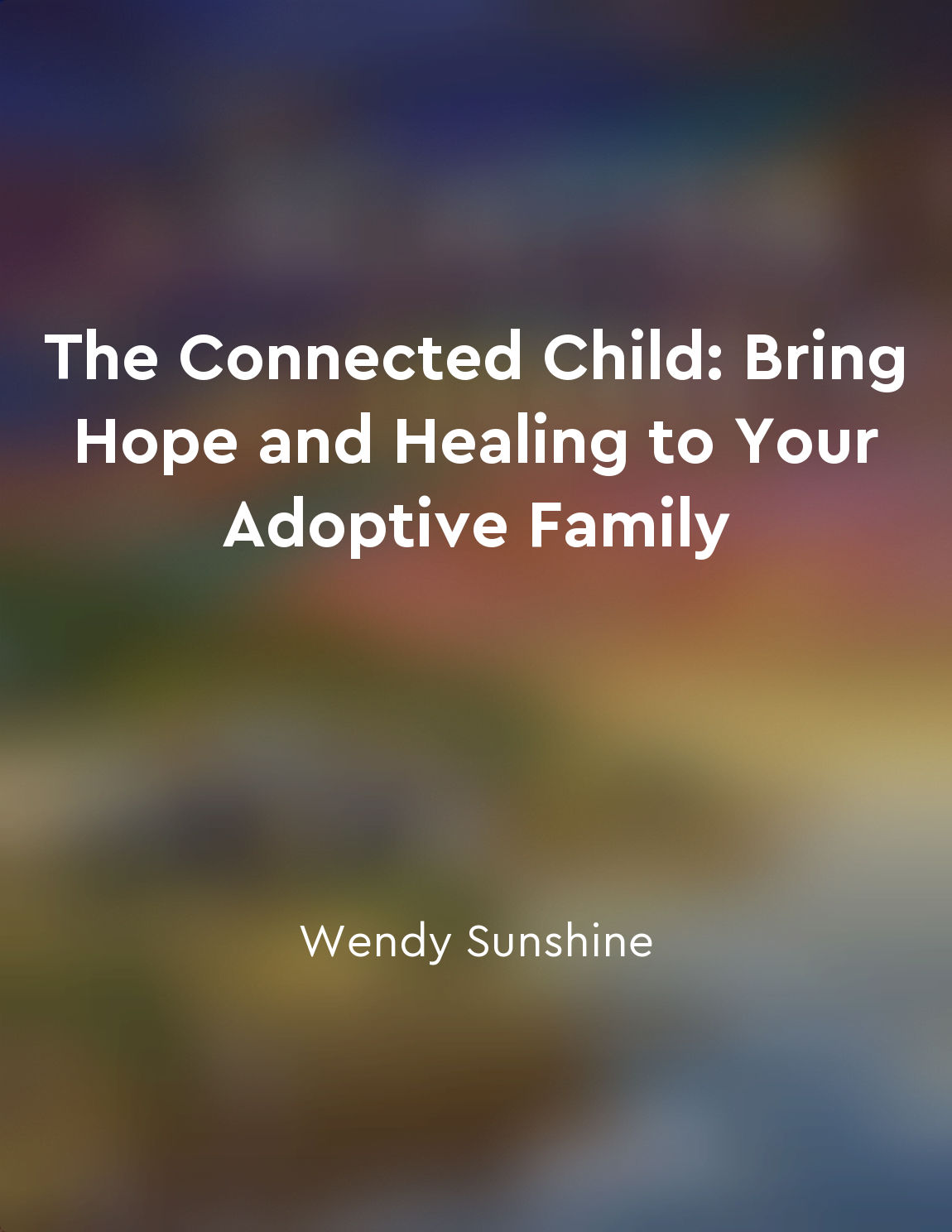Use humor to diffuse tense situations with your child from "summary" of Have a New Kid by Friday by Dr. Kevin Leman
When tensions are running high with your child, it's time to bring out the big guns - humor. Yes, you heard me right. Laughter really can be the best medicine in these situations. Think about it - when you're in a tense situation, a little humor can go a long way in breaking the tension and diffusing the situation. But how exactly do you use humor to diffuse tense situations with your child? It's all about finding the right balance. You don't want to make light of the situation or dismiss your child's feelings, but you also don't want to escalate the tension. Instead, try using humor to lighten the mood and shift the focus away from the negative emotions. One way to use humor is to make a joke or a funny comment that acknowledges the tension without adding to it. For example, if your child is upset about something, you could say something like, "Wow, it looks like we've got a real drama queen on our hands today!" This light-hearted comment can help your child see the situation from a different perspective and hopefully make them laugh in the process. Another way to use humor is to use funny voices or silly faces to turn a tense situation into a playful one. By injecting a bit of silliness into the situation, you can help your child relax and let go of their negative emotions. This can be especially effective with younger children who respond well to playful interactions. Remember, the goal of using humor in tense situations is not to avoid dealing with the issue at hand, but rather to create a more positive and open environment for communication. By using humor effectively, you can help your child feel more relaxed and willing to talk about what's bothering them. So go ahead, crack a joke, make a funny face, and watch the tension melt away.Similar Posts
Provide structure and routine in your child's daily life
One of the key strategies for ensuring a well-behaved child is to establish structure and routine in their daily life. This mea...

Use positive language when correcting behaviors
When correcting behaviors, it is important to use positive language. Positive language focuses on what you want your child to d...
Use storytelling to engage others in conversation
Storytelling is a powerful tool to connect with others in conversation. It allows us to share experiences, emotions, and ideas ...
Apologize when necessary
If you've made a mistake, don't try to cover it up or shift the blame. Instead, take responsibility for your actions and apolog...
Use positive reinforcement alongside consequences
Positive reinforcement should always be included alongside consequences when disciplining children. It is important to remember...
Improve communication skills
In order to create a strong and lasting marriage, couples must work on improving their communication skills. Effective communic...
Acknowledging and validating children's feelings fosters emotional intelligence
When children express their feelings, it is crucial for parents to acknowledge and validate those feelings. This act of recogni...
Attunement with your child builds connections
Attunement with your child is all about tuning in to their emotional state and responding in a way that shows you understand an...
Encourage children to take responsibility for their actions
When kids take responsibility for their actions, they learn valuable lessons that will benefit them throughout their lives. It'...

Parents should practice selfcare
It is crucial for parents to prioritize their own well-being and practice self-care. This is not a selfish act, but rather a ne...
